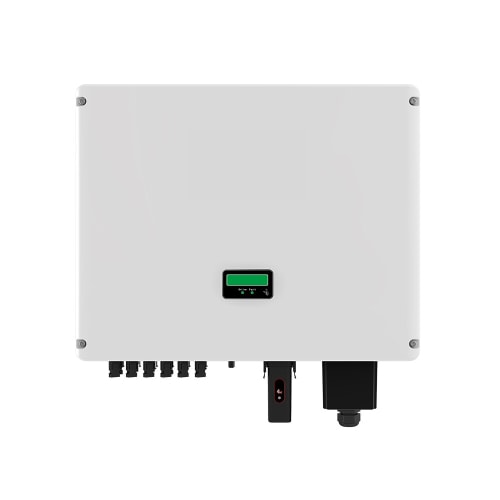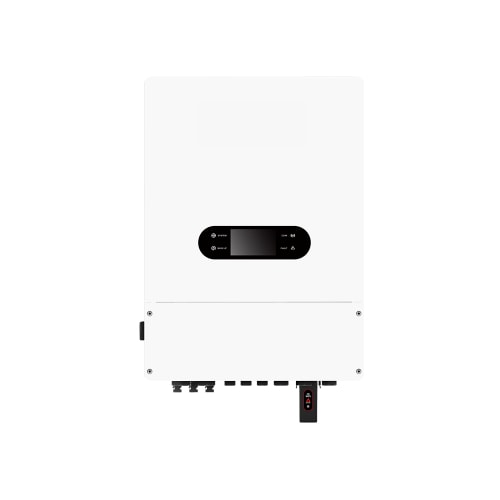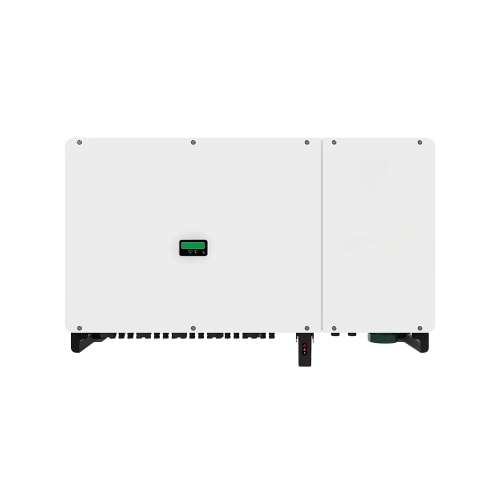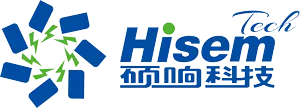NOTICIAS
¡Bienvenido a mi blog!
Antes de profundizar en el contenido, si está interesado en nuestros productos o tiene alguna pregunta, no dude en visitar nuestra Contáctenos Página del sitio web. Nuestro equipo está listo para atenderle con consultas, pedidos o cualquier asistencia que necesite.
Ahora, comencemos nuestro viaje juntos. Espero que el contenido aquí les resulte interesante, interesante y valioso.
Tabla de contenido
Introducción

As businesses increasingly focus on sustainability and cutting energy costs, commercial solar systems have become an essential tool. At the heart of these systems is the commercial solar inverter. This device plays a critical role in converting the direct current (DC) electricity generated by solar panels into alternating current (AC) electricity, which is what powers appliances, machinery, and other equipment.
In this article, we will explore how commercial solar inverters contribute to improving energy efficiency, highlighting their key features and how businesses can use them to enhance their overall energy performance.
How Commercial Solar Inverters Improve Energy Efficiency
The role of solar inverters in improving the energy efficiency of a solar system cannot be overstated. The inverter’s primary function is to convert the DC power generated by solar panels into usable AC power. However, the way it performs this task can have a significant impact on overall efficiency.
- Tecnología MPPT: Maximum Power Point Tracking (MPPT) technology ensures that the inverter extracts the maximum amount of energy from the solar panels, even as sunlight conditions change throughout the day. This means that the inverter works at optimal efficiency, ensuring more energy is captured and converted.
- Power Conversion Efficiency: High-efficiency inverters are able to convert a higher percentage of the energy generated by the solar panels into usable electricity, reducing losses and increasing overall system performance.
| Característica | Descripción | Por qué es importante |
|---|---|---|
| Tecnología MPPT | Realiza un seguimiento de la potencia óptima de salida de los paneles solares | Maximizes energy extraction from sunlight |
| Clasificación de eficiencia | Conversion rate of DC to AC power | Higher efficiency means more usable power |
| Grid Integration | Connects solar system with the grid | Helps businesses save on electricity during low solar production |
Commercial Solar Inverters vs. Residential Inverters
Commercial and residential solar systems differ in size, complexity, and energy requirements. Therefore, the commercial solar inverter is designed with specific features suited for large-scale energy production.
- Higher Power Capacity: Commercial inverters are built to handle much higher energy outputs. While residential inverters may serve a few kilowatts, commercial inverters can manage large-scale arrays that generate hundreds of kilowatts.
- Advanced Cooling Systems: These inverters often come with advanced cooling mechanisms to prevent overheating during continuous operation, ensuring they remain efficient over time, even under heavy loads.
Key Features to Look for in a Inversor solar comercial

When choosing the right commercial solar inverter for your business, several key features can help you maximize efficiency and long-term savings.
- Modular Design: Many commercial solar inverters come with a modular design, meaning you can easily add components or upgrade parts of the system without replacing the entire inverter.
- Real-Time Monitoring: Many models offer real-time monitoring capabilities, which help businesses track the inverter’s performance, energy production, and even detect issues before they become a bigger problem.
Efficiency of Commercial Solar Inverters and Their Impact on ROI
The efficiency of a commercial solar inverter directly influences a business’s return on investment (ROI). The higher the efficiency of the inverter, the more energy your solar system can produce.
- Lower Operational Costs: An efficient inverter allows businesses to reduce their reliance on grid electricity, which means lower energy costs over time.
- Faster ROI: Higher-efficiency inverters help businesses recoup their initial investment in a shorter amount of time, making them a smart financial choice.
The Environmental Benefits of Commercial Solar Inverters
While commercial solar inverters primarily focus on energy conversion, they also contribute to significant environmental benefits.
- Reducción de la huella de carbono: By efficiently converting solar energy into usable power, businesses reduce their reliance on fossil fuels, which helps in cutting down overall carbon emissions.
- Support for Renewable Energy Goals: Commercial solar inverters help businesses meet sustainability goals, showing commitment to green energy practices.
How to Size a Commercial Solar Inverter for Your Business
Selecting the right size for your commercial solar inverter ensures that the system can meet the energy demands of your business without overloading or wasting energy.
- Power Demand: The inverter should be sized to handle the peak demand of your business’s energy consumption. Oversizing or undersizing can reduce overall efficiency and increase costs.
- Future Scalability: Consider your future energy needs. It may be worthwhile to select an inverter with extra capacity to accommodate future system expansions.
How Commercial Solar Inverters Contribute to Sustainability Goals

A high-efficiency commercial solar inverter can support your business’s long-term sustainability efforts.
- Independencia energética: By relying on solar energy instead of the grid, businesses can increase their energy independence, reducing their exposure to fluctuating electricity prices.
- Integración de almacenamiento de energía: Many modern inverters are compatible with battery storage systems, which allow businesses to store excess energy generated during the day and use it during the night or when energy demand is higher.
Common Problems with Commercial Solar Inverters
Although commercial solar inverters are generally reliable, they can encounter issues that affect performance.
- Calentamiento excesivo: If the inverter is not properly ventilated or placed in an area exposed to high temperatures, it may overheat, leading to inefficiencies.
- Wiring Problems: Loose connections or faulty wiring can lead to energy losses. Regular checks and maintenance can help prevent such issues.
The Role of Commercial Solar Inverters in Grid-Tied Systems
Grid-tied solar systems are common for commercial applications, and solar inverters are responsible for connecting the system to the grid.
- Net Metering: With net metering, excess energy generated by the solar system is sent back to the grid, and businesses can earn credits. Commercial solar inverters help manage this process, optimizing the energy flow.
El futuro de Commercial Solar Inverters

With the increasing demand for renewable energy, commercial solar inverters are evolving to become smarter and more efficient.
- Inversores inteligentes: These inverters can adjust in real-time based on external conditions like sunlight, temperature, and grid demand. This capability enhances efficiency and ensures maximum energy extraction from the solar panels.
- Integration with Smart Grids: Future inverters will likely be more integrated with smart grids, allowing for more dynamic energy management and improving overall energy efficiency across communities.
Conclusión
Choosing the right commercial inversor solar is a critical decision for businesses looking to optimize their solar systems and improve energy efficiency. With features like MPPT technology, high efficiency ratings, and the ability to integrate with energy storage systems, solar inverters provide significant cost-saving and environmental benefits. As the solar industry continues to grow and innovate, businesses can look forward to even smarter, more efficient solar technologies in the near future.
Preguntas frecuentes
What is the lifespan of a commercial solar inverter?
Commercial solar inverters typically last between 10 to 15 years with proper maintenance.
How do I know if my inversor is working efficiently?
Regular monitoring through integrated apps and software will help detect inefficiencies and potential issues early.
How can I maintain my commercial solar inverter?
Regular cleaning, monitoring, and checking for any wiring issues will help maintain optimal performance.

